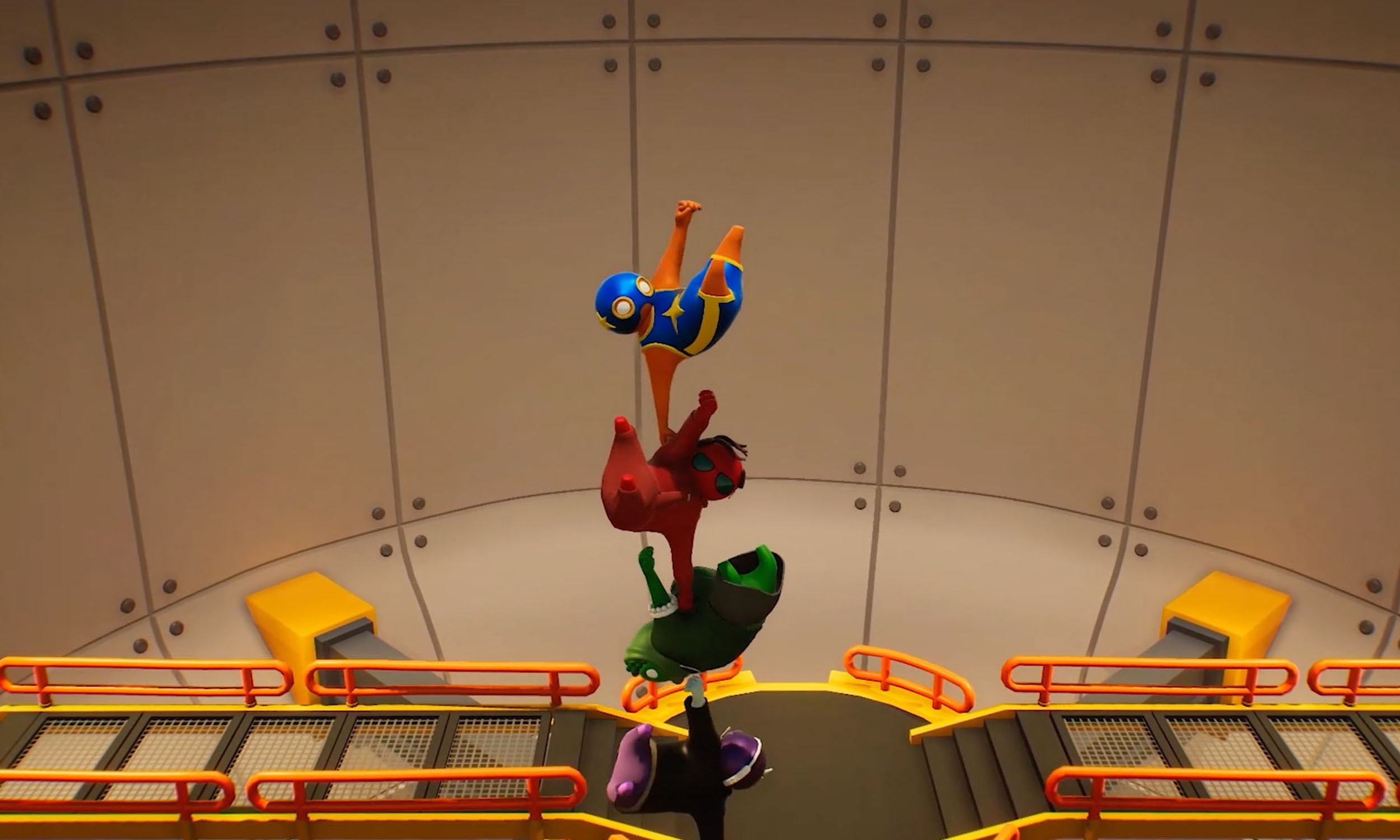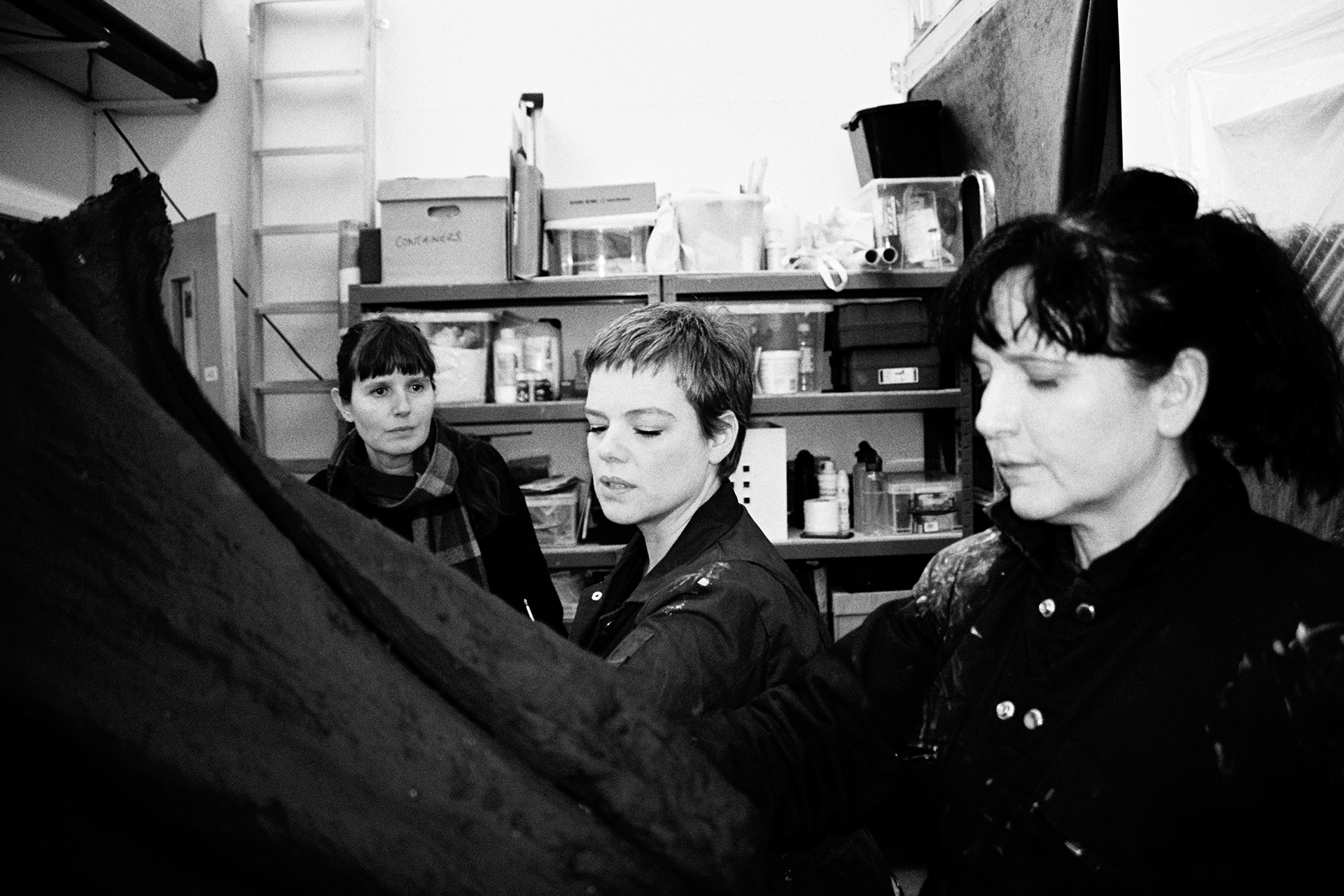Interacting with transgender people from Japan in the form of cyber pets is an oddly and uniquely intimate experience. This is what artist Zoyander Street brought together for Doc/Fest’s 2019 Alternate Realities exhibition with Interactive Portraits: Trans People in Japan – turning interviews they’d conducted with these twelve people into portraits of experience and emotion rather than of physical likeness. Each participant was free to open up with the promise of being anonymised as a videogame character, which visitors to the exhibition then met and interacted with using something vaguely reminiscent of a Game Boy. It’s an imaginative take on interactive documentary, invoking a cosy nostalgia for lo-fi videogames, as well as familiarity with the basic button-pushing gameplay of a single-player role-playing game, to create connections between real people.
Zoyander’s explorations into playful and playable forms of documentary run side by side with their inquiries into topics around identity and emotion. They carry out interviews and PhD research at the same time as repurposing old tech and experimenting with new tech at their base in Replicast – a studio complex set up by artist Jennifer Booth in the same building as a working foundry, which Zoyander thinks “might be the nicest studios in Sheffield”.
We spoke to Zoyander about “toxic garbage” and using art to process ideas around emotion, trans issues and the self, as they prepared new work for Platform – an exhibition by the first five Sheffield artists to benefit from the Freelands Artists Programme.
Update: Zoyander is releasing Interactive Portraits: Trans People in Japan as an online download on 31 March 2020 for Transgender Day of Visibility – download it for Windows/macOS/Linux (free, donations welcome).
How do you describe your work?
I’m an artist-researcher who plays with devices and has a fondness for toxic garbage. I like to repurpose old computers in what I'm doing; making them work feels like nursing an injured animal back to health. I also like using my practice to process things that are toxic in our culture and psychology, doing something differently with traumatic memories or transforming elements of media culture that aren’t especially healthy. I'm doing a part-time PhD and my research and art practice have become really closely connected. My art is more and more focused on this kind of interactive documentary, driven by the outcome of my research.
How do you choose the themes you work with?
There's the techy side of it, where I'm interested in very limited digital creativity tools. Things like Tidal Cycles that Alex McLean here in Sheffield made. It's a tool for making music that has its own logic and you adopt a practice of how to use it, rather than learning how to get it to do what you want. Craft practices are already kind of cyborgy – like it's the human meeting the performances of the material and tools, and something happens between them – and I love things where you explore what you can do and find something that others didn't. The tool that I used to make the project at Doc/Fest is like that; it's a "fantasy console" called PICO-8, an emulator for a 1980s computer that never existed, that's actually got even tighter constraints than a computer from the 80s.
I'm also attracted to topics about identity and emotions, how they don't work the way that we culturally believe they do. There are all these things that happen are on the fringes of them, and by looking at them you understand the core a lot better. I see trans issues as part of that. I'm into a bit of academic theory called queer affect theory, looking at emotions with an inquiring eye – it does a lot of good psychologically as well as being intellectually interesting!
What are you currently working on?
I'm working on two pieces. One is an interactive self portrait, which I'm going to display in a vintage pram that I'll turn into a games console. Normally my portraits are made from interviews that I do with others, but this one is based on a guided inquiry into the illusion of self that I did online last year. It's like taking a thorough sweep of every aspect of your conscious experience and going "can you find a self in it?" So I'm turning the transcript into an interactive thing where people choose questions using embroidery with electro-conductive thread, and this text-based representation of me is projected onto a piece of embroidered fabric.
The other project I'm working on is longer-term. I’m interviewing transgender people around the UK about trans experiences of waiting – part of that is NHS waiting times, part of it is bureaucratic stuff, part of it is waiting for hormones to have enough of an effect to where you pass in day to day life, which might not actually happen, and part of it is waiting for society to change. For most trans people that I know, in order to be okay, we've had to change our relationship to waiting for things to be different, to live in the now and stop thinking of ourselves as unfinished. I want to represent that with a long piece of textile embroidered with people waiting in line, like a cyber-twee-queer-Bayeux Tapestry. I started the interviews at a residency in Belfast and I’m hoping to get 15 each from four locations, which the Freelands Programme really helps with because it's connected to three other places in the UK.
What do you love about Sheffield?
Sheffield is an incredibly good place to be creative. I ended up back here by accident about four years ago after living in North America for three years, thinking it was just going to be temporary. I was living with the artist Jennifer Booth and she was taking me along to events, so I was learning about all the creative stuff happening here and realised that I need to stay. It’s a much more supportive place to be an artist than the big global cities that are known for it; those places don't have the same material support, the cost of living is higher, and there's all this infighting where everyone's like “I have to become one of the best.” Here, the idea of being an artist is that you're just doing it. You're probably not doing it full time but the fact that you've been able to create space in your life for it, and that you spend your time meeting other artists and making these supportive circumstances, that's what makes you an artist here – and that’s really healthy.
Also the grassroots efforts to make things better for people here are exciting. The example I always give is Foodhall. What I love about it is it's not charity. It's not a thing where the people who have more privilege provide food for people who are struggling – it's a bunch of people with different interests coming together, and someone cooks. And the person who cooks isn't necessarily “doing their bit” to give back. It feels like a really utopian project, like regardless of what happens in terms of big political or structural change, it's going to be this kind of grassroots stuff that gets us through.
What would you change about the city?
It’s boring and materialistic but I really want good-quality low-cost housing. I'm probably going to move to Rotherham by the end of the year just because I want to buy my own home. There's a lot of positive things happening in Rotherham, like Grimm & Co – it's not just a cool magical shop but this amazing values-driven organisation delivering work that children desperately need right now. And there's an amazing cycle route along the canal between Sheffield and Rotherham, so I'm looking forward to doing the commute. Though it would be nice to be able to live in Sheffield.
I’d also really like to have a local community of people doing really weird stuff with videogames – that’s where I live creatively. We've got a lot of potential to build on now that we've got the National Videogame Museum here. I know there's people interested in the intersection of videogames and art but it seems like the two industries don't overlap a lot in Sheffield, so we need to make space for that.
Other Freelands artists are: Lucy Vann, Siân Williams, Alison J Carr, and Yuen Fong Ling.
- Words by
- Kathryn Hall










